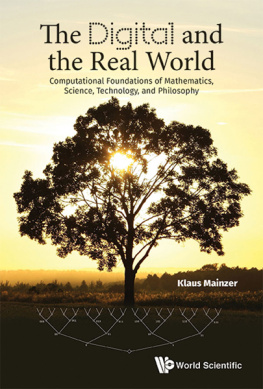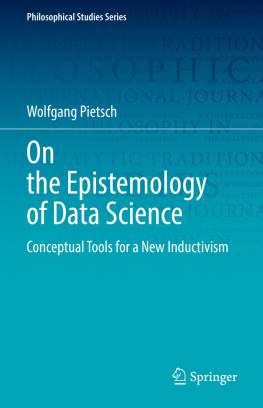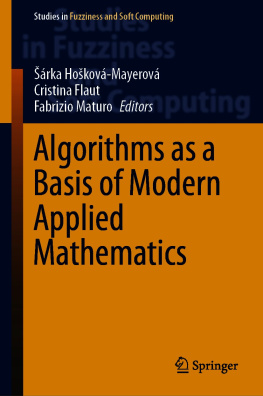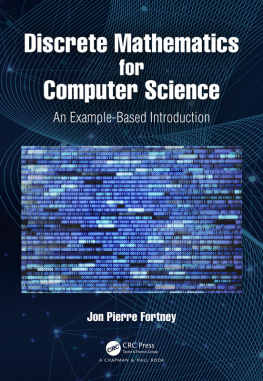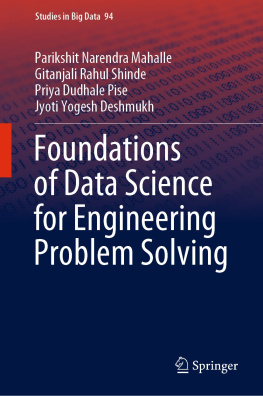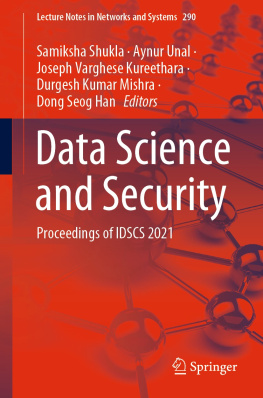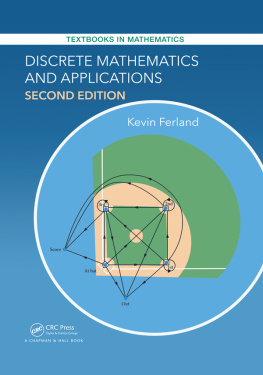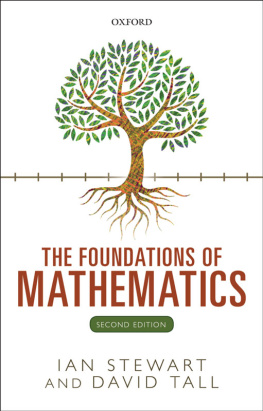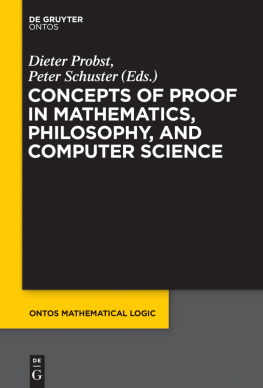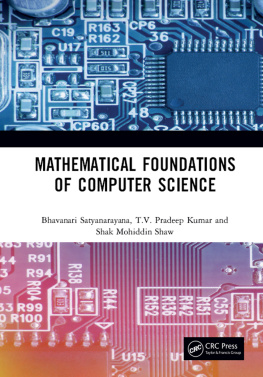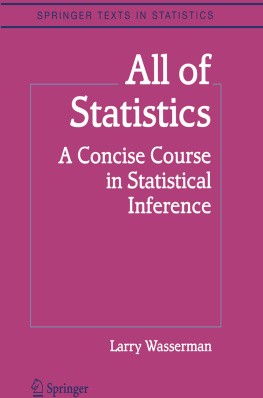Table of Contents
Landmarks


Prof. em. Dr. Klaus Mainzer
Emeritus of Excellence
Graduate School of Computer Science
Technical University of Munich
Germany
e-mail:
Published by
World Scientific Publishing Co. Pte. Ltd.
5 Toh Tuck Link, Singapore 596224
USA office: 27 Warren Street, Suite 401-402, Hackensack, NJ 07601
UK office: 57 Shelton Street, Covent Garden, London WC2H 9HE
Library of Congress Cataloging-in-Publication Data
Names: Mainzer, Klaus, author.
Title: The digital and the real world : computational foundations of mathematics, science,
technology, and philosophy / by Klaus Mainzer (Technical University of Munich, Germany).
Description: New Jersey : World Scientific, 2017. | Includes bibliographical references.
Identifiers: LCCN 2017023302 | ISBN 9789813225480 (hc : alk. paper)
Subjects: LCSH: Logic, Symbolic and mathematical. | Mathematics--Philosophy.
Classification: LCC QA8.4 .M35 2017 | DDC 510.1--dc23
LC record available at https://lccn.loc.gov/2017023302
British Library Cataloguing-in-Publication Data
A catalogue record for this book is available from the British Library.
Copyright 2018 by World Scientific Publishing Co. Pte. Ltd.
All rights reserved. This book, or parts thereof, may not be reproduced in any form or by any means, electronic or mechanical, including photocopying, recording or any information storage and retrieval system now known or to be invented, without written permission from the publisher.
For photocopying of material in this volume, please pay a copying fee through the Copyright Clearance Center, Inc., 222 Rosewood Drive, Danvers, MA 01923, USA. In this case permission to photocopy is not required from the publisher.
For any available supplementary material, please visit
http://www.worldscientific.com/worldscibooks/10.1142/10583#t=suppl
Desk Editors: V. Vishnu Mohan/Tan Rok Ting
Typeset by Stallion Press
Email:
Printed in Singapore
Preface
In the 21st century, digitalization is a global challenge of mankind. Even for the public, it is obvious that our world is increasingly dominated by powerful algorithms and big data. But, how computable is our world? Some people believe that successful problem solving in science, technology, and economy only depends on fast algorithms and data mining. Chances and risks are often not recognized and understood because the foundations of algorithms and information systems are not studied rigorously. Actually, they are deeply rooted in logic, mathematics, computer science, and philosophy.
Therefore, this book studies the foundations of mathematics, science, and technology from a computational point of view. We start with basics of computability theory, proof theory, and information theory. In the second step, we introduce new concepts of information and computing systems in order to overcome the gap between the digital world of computers and the analog world of physical reality and sensor experience. Digital computing relates to a discrete reality which is mathematically modeled by finite quantities like bits and integers. Analog (real) computing assumes a continuous reality which is mathematically represented by infinite quantities like real numbers. The gap between the digital and the analog can also be found in the global information networks: The Internet of Things (IoT) consists of digital apps and supercomputers as well as trillions of analog sensors. Their mathematical modeling is a great challenge of scientific computing. The book also considers consequences for digital and analog physics, digital and analog functions of the brain, digital and real computing in economic and financial applications. The epistemic question arises whether human thinking (e.g., mathematics) is more than digital computing beyond Turing computability.
Traditionally, foundational debates on mathematics are considered as philosophical issues which are far away from the mathematical applications to solve real-world problems. However, constructive problem solving is deeply connected with the foundations of constructive logic and mathematics. A constructive solution comes with an algorithm to compute it directly. But, sometimes, mathematicians only prove indirectly that a solution exists consistently without telling us how to find the solution. If there is no constructive proof, the question arises how far away it is from being constructive. We suggest a foundational theory with degrees of constructivity, provability, and computability for practical applications. Finally, the gap between the digital and the real-world can be overcome by these degrees of constructivity, provability, and computability: How far can real-world problems be reduced to degrees of constructive proving and computing?
Obviously, this kind of foundational research has practical consequences and societal impact. In the age of big data and increasing complexity of human civilization, constructive proofs and tests of algorithms are urgently demanded to avoid a dangerous future with overwhelming computational power running out of control. Automated theorem proving which came up in the foundations of mathematics and computer science can help prevent costly and dangerous flaws in global networks. The degrees of constructivity, provability, and computability improve control, security, and reliability.
The book aims at students at graduate level, scientists and readers who are interested in foundational, interdisciplinary, and philosophical questions of mathematics, computer science, and science in general. In Munich, my colleagues, Helmut Schwichtenberg, Peter Schuster, and I initiated an international autumn school on Proof, Computation, and Digitalization in Logic, Mathematics, Computer Science, and Philosophy which considers the theoretical foundations as well as their practical applications. I thank all the colleagues and postdocs of this school for their inspiration. Our Munich enterprise should offer an interdisciplinary platform of foundational discussion and research on logic, mathematics and computer science which are, without any doubt, key disciplines of modern digital civilization. It is an exciting experience that these debates are deeply involved in philosophy as well as in the societal impact of future technologies.
Klaus Mainzer
Munich
February 2017
Contents
Chapter 1
Introduction
Historically, the theory of algorithms and computability started in the beginning of the last century with foundational debates on logics, mathematics, and philosophy. Therefore, the digital world has its origins in logical, mathematical and philosophical theories.
Alan Turing anticipated the development of the digital general purpose computer by his famous Turing machine (Turing, 1936). Here, we have a finite state control device with a read/write head and a two-way unlimited tape consisting of an unlimited number of cells. The control device is regulated by a program which is a finite set of instructions with states of the machine, operations for printing 0, 1 and (blank) into the cells, moving left or right one cell, and stopping the tape.

